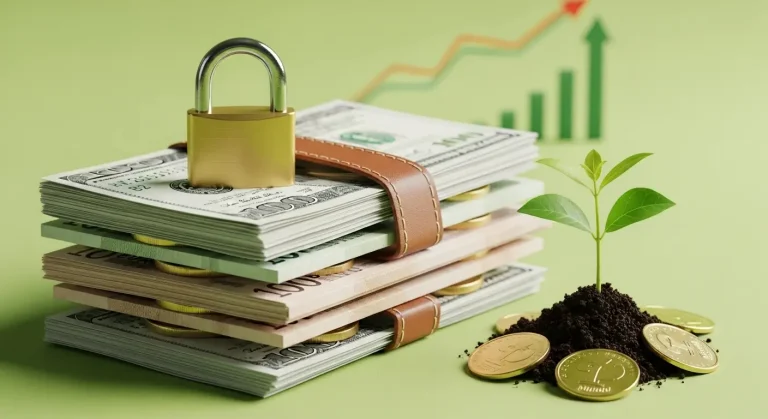Facing a lawsuit can be a daunting experience, especially when you don’t have the financial means to defend yourself or pay for any potential damages. So, what happens when someone sues you and you have no money? The process can vary depending on the specifics of the lawsuit, but there are several potential outcomes you should be aware of. Understanding your rights and the legal options available can help you navigate this challenging situation.
Understanding the Consequences of Being Sued with No Money
When you have no assets or money, the reality of a lawsuit can seem overwhelming. However, the fact that you lack financial resources doesn’t necessarily mean that the plaintiff (the person suing you) will be able to collect a judgment from you. Here’s what could happen:
1. The Lawsuit May Continue Despite Financial Hardship
Even if you don’t have money or assets, the lawsuit can still proceed in court. The plaintiff may win the case and be awarded a judgment against you, but if there are no assets to collect from, they may not be able to recover the money owed. This can be frustrating for the plaintiff, but it doesn’t stop the legal process.
However, winning a judgment doesn’t always mean immediate payment, especially if you don’t have the financial means to pay. Some legal systems will allow the court to assess your financial situation before deciding how the judgment should be paid.
2. Judgment for the Plaintiff
If the court finds in favor of the person suing you, they will issue a judgment. This means you owe the plaintiff the amount they claim, which may include compensatory damages, interest, and possibly legal fees. But just because you’re ordered to pay doesn’t mean you automatically have to pay the full amount immediately.
In cases where you have no money or assets, the plaintiff might have difficulty collecting. The court could place liens on any future earnings or property that you may acquire, but if you currently have nothing, there’s no immediate way for them to collect. This often leads to the judgment remaining “uncollected” for years.
3. Bankruptcy Protection
One of the most effective legal tools available to people with no money is bankruptcy. If you are facing a lawsuit and have no assets or income, filing for bankruptcy may offer a way to discharge or reduce the debts resulting from the lawsuit.
Bankruptcy can provide relief from certain types of debts, including judgments for credit card debt, medical bills, and even personal loans. However, not all debts are dischargeable in bankruptcy. For example, if the lawsuit is related to personal injury or fraud, bankruptcy may not eliminate the obligation.
Chapter 7 vs. Chapter 13 Bankruptcy
- Chapter 7 bankruptcy: This is often called liquidation bankruptcy, and it can eliminate most of your debts. In Chapter 7, a court-appointed trustee may sell your non-exempt assets to pay creditors. However, if you have no assets, this won’t impact you.
- Chapter 13 bankruptcy: This type of bankruptcy involves creating a repayment plan to pay back a portion of your debts over 3 to 5 years. If you have no money, however, a court may determine that you cannot afford to make any payments, and the plan might not be applicable.
4. Wage Garnishment
If the court awards a judgment to the plaintiff, they may try to collect the debt by garnishing your wages, which means that a portion of your paycheck will be deducted and sent to the creditor. However, if you have no money or are unemployed, wage garnishment may not be an effective option.
Even though you might not have the ability to pay immediately, garnishment could start if you begin earning wages in the future. It’s also important to note that wage garnishments are subject to legal limits, and there are rules protecting certain income levels from garnishment.
5. Collection Efforts and Default Judgments
If the plaintiff wins the case but can’t collect from you right away, they may continue to attempt to collect the debt over time. This may involve collection agencies, which will try to pursue the debt, often using aggressive tactics.
If you don’t show up to court or fail to respond to the lawsuit, the plaintiff may obtain a default judgment. This means the plaintiff wins automatically due to your failure to participate in the legal process. This can hurt your credit and may lead to additional collection efforts. However, if you have no assets, it may still be a case of “paper judgment” where no funds are collected.
6. Impact on Your Credit
When someone sues you and wins, the judgment may be reported to credit bureaus and can severely impact your credit score. This can make it difficult to obtain loans, credit cards, or even housing in the future. While a judgment is a legal issue, its financial consequences can be long-lasting, even if you have no current income or assets.
What Can You Do If You Have No Money During a Lawsuit?
If you find yourself being sued and you have no money or assets, there are still several steps you can take to protect yourself:
1. Negotiate with the Plaintiff
Sometimes, the plaintiff may be willing to settle for a lower amount or agree to a payment plan. If you have no money or assets, you can approach them with a realistic offer, such as paying a portion of the amount owed over time or offering a lump sum that you can afford. This negotiation can help you avoid further legal action or collection attempts.
2. Seek Legal Aid
If you can’t afford a lawyer, look into legal aid or pro bono services. Many legal organizations offer free assistance to individuals who cannot afford to pay for legal representation. This can help you navigate the lawsuit and ensure that your rights are protected, even if you have no money.
3. File a Motion to Dismiss
If the lawsuit is frivolous or you believe that the plaintiff’s case is weak, you can file a motion to dismiss. This is a legal request to have the case thrown out of court. The motion could be based on various factors, including the inability to prove the claim or a lack of legal standing.
If you can demonstrate that the lawsuit has no merit, it could be dismissed, and you may avoid a judgment altogether.
4. Examine Exempt Property
Even if you have no money, certain properties are considered exempt from being seized to satisfy a judgment. These exemptions can vary by state or country but typically protect things like basic household items, necessary clothing, and tools for your job. You may be able to claim these exemptions and protect some of your property from being taken.
5. Consider Mediation
Mediation is a process where both parties involved in a lawsuit meet with a neutral third party to try to reach a settlement. If you have no money, mediation may offer a chance to resolve the dispute without the expense and stress of a trial. A mediator can help both parties come to an agreement that works for everyone, often resulting in a more affordable solution.
When Is Bankruptcy a Viable Option?
As mentioned earlier, bankruptcy can be a powerful tool when you have no money and are facing a lawsuit. Here are some factors to consider when deciding if bankruptcy might be the best option for you:
1. Type of Debt
If the lawsuit results in debts that are dischargeable in bankruptcy, it could be a good idea to file. Chapter 7 bankruptcy could eliminate most of your obligations, while Chapter 13 could offer a manageable payment plan if you eventually have an income.
2. Impact on Future Earnings
Even if you don’t currently have money, bankruptcy may help you protect your future income from being garnished. This can give you a fresh start and allow you to rebuild your financial life without the constant threat of wage garnishment or debt collectors.
3. Asset Protection
Bankruptcy can also protect your assets by categorizing them as exempt or non-exempt. Exempt assets can be protected from seizure, allowing you to maintain basic possessions like your home, car, or necessary work equipment.
Conclusion
Being sued when you have no money can feel like a hopeless situation, but it doesn’t mean you are completely without options. Whether it’s through bankruptcy, negotiating a settlement, or simply understanding the limitations of a court judgment, there are ways to protect yourself. While the legal process can be complex, it’s important to take action early. Seek legal assistance if necessary, and understand your rights, as the outcome of a lawsuit can impact your future finances.
Source: FinTechRevo
FAQs
Can a lawsuit proceed if I have no money or assets?
Yes, a lawsuit can still proceed even if you have no money or assets. The plaintiff can win a judgment, but if there are no assets to seize or income to garnish, they may not be able to collect the debt. However, the legal process does not stop just because you cannot pay.
What happens to my credit if I lose a lawsuit and can’t pay?
If you lose a lawsuit and are unable to pay the judgment, it can negatively impact your credit score. The judgment may be reported to credit bureaus, making it harder to obtain loans, credit cards, or even housing in the future.
Can a plaintiff still collect a judgment if I’m unemployed?
If you are unemployed and have no income or assets, it may be difficult for the plaintiff to collect on the judgment. However, if you gain employment or acquire assets in the future, the judgment may be enforced through wage garnishment or asset seizure.
How long does a judgment last if I cannot pay?
A judgment can last for several years, depending on the jurisdiction, and may be renewed. Even if you cannot pay right away, the plaintiff can continue attempting to collect the debt through various means, like garnishment or lien placement.
Is there a way to prevent a lawsuit from impacting my future income?
One way to protect future income is through bankruptcy. Bankruptcy can discharge many types of debt, including those resulting from lawsuits, and can prevent creditors from garnishing your wages. However, it does not apply to all debts, such as student loans or debts from fraud.





